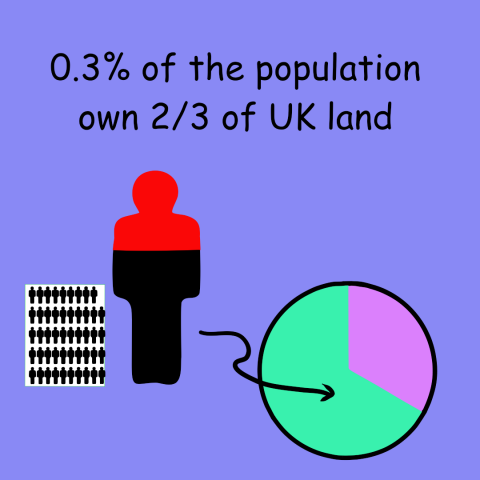The UK Property Myth
Is there anything to be done about the housing crisis?
Let's think about this... Too much of the UK's GDP is based on inflated property prices and this ever so slippery trick of the light is nothing short of deceptive. The awful truth is, the property economy provides merely an illusion of wealth. For in reality, though it may pose rather prettily on paper, property adds little real value to the productive economy.
As house prices rise, homeowners feel richer. They chip away equity from their homes and spend into the economy. Hence the economy appears to expand. But eventually, house prices soar faster than wages increase. The consumer has less to spend after paying rent and mortgages. With nobody to buy all the goodies created by a talented, industrious population, the economy contracts and all that productive energy is wasted.
Once caught in this trap, the government has little choice but to keep the game going. They invent new schemes such as shared ownership. They heartily welcome overseas investors to the casino in an effort to prop up prices. But an economy addicted to inflated assets is unsustainable and the one we see today.
So could there be a democratization of property ownership? Could profits be shared by the greater collective body of the citizens?
If ownership were divided equally between private individuals and the public, the proportion of the profit belonging to the public could be used fo build roads, schools, hospitals, transport and generally the cost of running the government. This has the potential to eliminate taxes and pay for a Universal Basic Income.
Such a change needn't be disruptive and it most certainly needn't affect the ownership of the majority of private citizens. Indeed such an undertaking could be rolled out and begin with the entrenched land ownership of 2/3 of UK land. This land - still owned by the descendants of William the Conquerors soldiers has been held since the Battle of Hastings in 1066. Much of it is not just un-beneficial and non-productive, but the descendants actually benefit from generous EU subsidies as well.
A Land Value Tax could free much of this land which could then be purchased by either government or groups of citizens. This could provide the potential for a new era of land ownership. So say "hello" to Hybrid Communities where land ownership is divided 50/50 between the private citizen and the collective.
Hybrid Communities would provide the benefits of productive capitalism along with caring socialism.
Win-win.
Yes?

